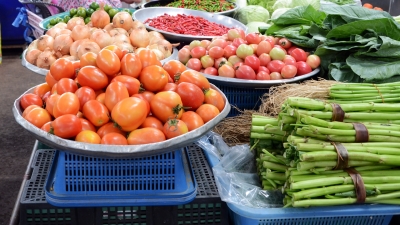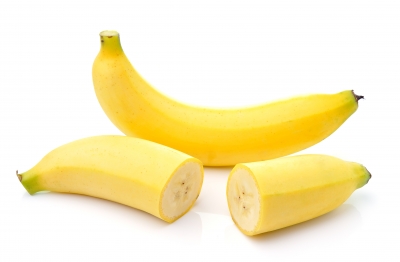What Fruits Are in Season?
We all know how important it is to get your fruits and veggies in. Breakfast is a huge part of the day and healthy snacks in between are important to keep your metabolism going. If you want to get the full benefits of the delicious fruits you are eating, it is best to eat seasonally. Not only are you supporting local farmers but you get the freshest produce since they are not being frozen, packaged or shipped.
Shari’s Berries has created a chart with over 50 fruits and their peak season. Use fresh apricots in your favorite nonfat yogurt or infuse your water with blueberries. The good news is, there are a variety of options all year long.
Continue reading
Farmers Markets to Lower Blood Pressure with the DASH Diet

This Dietary Approaches to Stop Hypertension (DASH) diet is recommend to manage high blood pressure. This diet is rich in fruits and vegetables. You need to consume between three to five servings of vegetables daily and between four to five fruits daily. That likely sounds overwhelming, but it can be effective in your efforts to lower blood pressure.
One vegetables serving is equal to 1 cup raw leafy green vegetable, ½ cup cut-up raw or cooked vegetables, or ½ cup vegetable juice.
One fruit serving is equal to 1 medium fruit, ¼ cup dried fruit, ½ cup fresh, frozen, or canned fruit, or ½ cup 100% fruit juice.
It’s the perfect time of year to adopt the DASH diet if you are struggling with high blood pressure. Many varieties of produce are in season and farmers markets are readily available.
3 Benefits of Shopping at Farmers Markets
- Farmers markets are environmentally friendly. The food is produced and sold locally, while food in grocery stores travels an average of 1500 miles before it reaches your plate.
- Produce grown for farmers markets is typically allowed to fully ripen naturally before it is harvested. Nothing is used to speed up the ripening process.
- The produce purchased at a farmers market comes straight from the garden. No processing. This equals fresh and nutrient rich food.
Tips for Shopping at Farmers Markets
Shopping at a farmers market is not the same as going to the grocery store.
Continue reading
Will you 'Eat with Color' this National Nutrition Month?
 Every March we celebrate National Nutrition Month. This year the focus is on making informed food choices and developing sound eating and physical activity habits.
Every March we celebrate National Nutrition Month. This year the focus is on making informed food choices and developing sound eating and physical activity habits.
‘Eat Right with Color’ is the theme this year. What does this mean for you?
Lower Blood Pressure with Potassium
 The effectiveness of potassium to lower blood pressure is directly related to sodium. Potassium works to balance out the sodium in your diet. An adequate potassium intake can lower systolic pressure ~4.4 mm Hg and diastolic pressure ~2.5 mm Hg.
The effectiveness of potassium to lower blood pressure is directly related to sodium. Potassium works to balance out the sodium in your diet. An adequate potassium intake can lower systolic pressure ~4.4 mm Hg and diastolic pressure ~2.5 mm Hg.
If you want to prevent or lower blood pressure it’s very important you balance your intake of sodium and potassium. The more potassium in your diet and the lower the sodium, the better your blood pressure will be.
Sodium Recommendations
The typical American diet contains 3.6 grams of sodium daily. It’s recommended that sodium intake be limited to 2.3 grams or less daily (~1 teaspoon). If you already have high blood pressure you’ll want to restrict your sodium intake even further – less than 1500 mg/day.
How Much Potassium?
4 Benefits of a High Fiber Diet
Current recommendations are to consume 25-35 grams of dietary fiber everyday. Here are 4 benefits you’ll receive from achieving the recommended intake.
1. Lower cholesterol and stabilized blood sugar/insulin levels.
2. Regularity to prevent constipation and diverticulosis (small out-pouchings from the large intestine).
3. Reduced risk of colon cancer.
4. Increased satiety – you’ll feel full when eating less calories and fat to promote weight loss.
Some of the best fiber sources include fruits and vegetables!
All the best,
Lisa Nelson RD
How to Lower Cholesterol in 8 Simple Steps
http://www.lowercholesterolwithlisa.com
Do you peel your fruits and vegetables?
When you peel fruits and vegetables you throw away a large chunk of its nutritional value. Such as a large dietary fiber loss when you throw out an apple skin, along with vitamin C, and various other minerals.
You may be tempted to throw out produce skins due to pesticides. Instead opt to thoroughly wash your produce to remove potential contaminants. If you are especially concerned, consider buying organic produce.
All the best,
Lisa Nelson, RD
eNutritionServices



